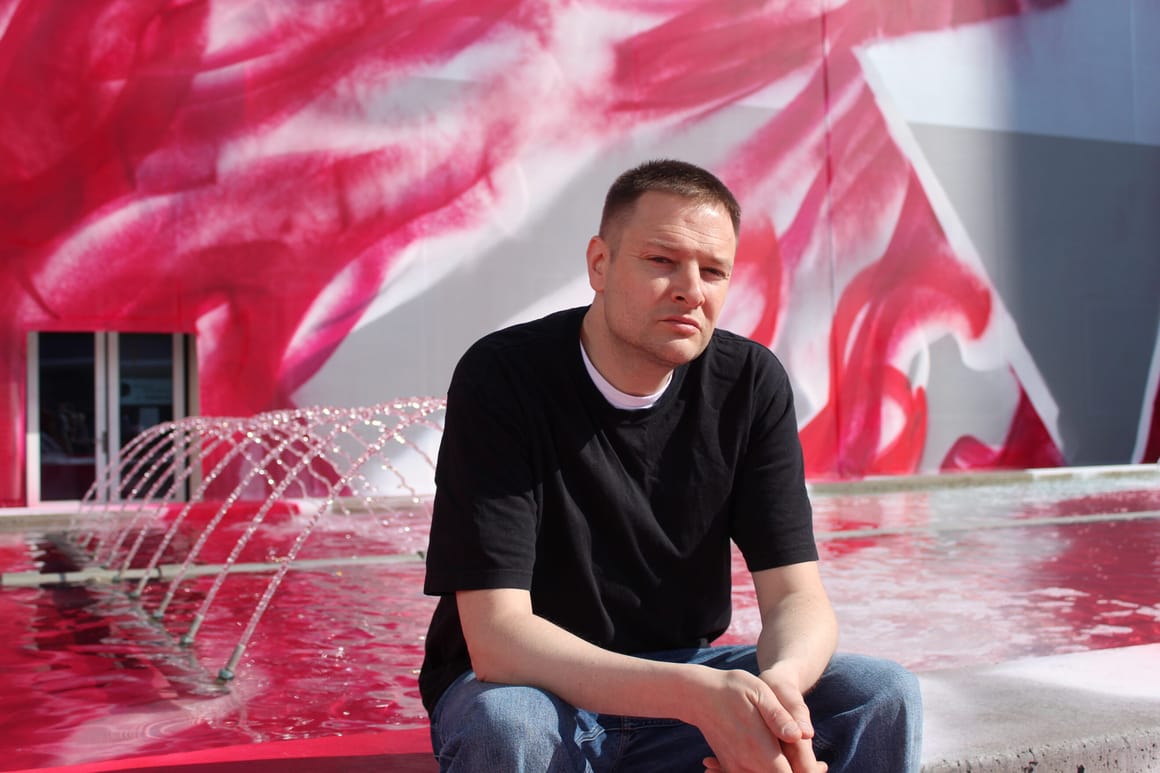Politics
Qatar Joins Global Art Scene as Art Basel Expands to Doha

Art Basel has announced that Doha, the capital of Qatar, will host a new edition of the prestigious art fair in February 2024. This decision signifies a significant expansion of the event’s global reach, placing Qatar among other prominent cities like Paris, Hong Kong, Miami, and Basel. The move highlights the intersection of high-end art, business, and politics, raising questions about the influence of wealth on culture.
Qatar’s Rising Cultural Influence
Historically, the contemporary art scene has been dominated by cities such as Paris and New York. Yet, Qatar’s integration into this elite circle marks a pivotal shift. Under the guidance of Sheikha Al Mayassa bint Hamad bin Khalifa Al Thani, sister of the current emir, Qatar has invested heavily in the arts, reportedly spending up to $1 billion annually to build a world-class museum network. The collection includes high-value pieces, such as Paul Cézanne‘s painting of card players, valued at $250 million, and a $300 million work by Paul Gauguin.
This strategic cultural investment is part of Qatar’s broader ambition to enhance its soft power on the global stage. Following its successful bid for the 2022 FIFA World Cup, the nation is determined to leverage such events to foster international relationships and promote its cultural identity.
The Complexities of Art and Politics
Despite the positive developments, Qatar’s push for cultural prominence is not without controversy. The country has faced serious allegations concerning labor rights violations, particularly related to the construction projects for the World Cup. Activists claim that as many as 6,500 workers died due to unsafe working conditions, although official figures cite between 400 and 500 fatalities.
Moreover, recent corruption scandals in Brussels, involving the arrest of two EU lawmakers, have raised questions about Qatar’s political dealings. These incidents highlight the dual nature of Qatar’s cultural and political aspirations, as the country seeks to improve its international image while grappling with significant human rights challenges.
Art and business have always been intertwined, as noted by artist and scholar Gregory Sholette. He emphasizes that while art serves as a cultural beacon, it is also deeply embedded in financial interests. Sholette pointed out that Art Basel’s collaboration with Qatar underscores the complexity of these relationships, where art acts as both an expression of culture and a vehicle for political influence.
Art Basel’s CEO, Noah Horowitz, addressed concerns regarding Qatar’s human rights record, stating, “They’ve stepped forward in a very direct and meaningful way for some time now in the role of culture.” This perspective reflects a growing trend where cultural events are leveraged as platforms for nations to enhance their soft power.
As the art market continues to flourish, with sales reaching $57.5 billion in 2024 according to a recent report from UBS, events like Art Basel serve as crucial networking opportunities for the elite. The fair attracts around 88,000 attendees, including notable figures such as actor James Franco and former footballer Michael Ballack. This year, a standout piece by British artist David Hockney sold for between $13 million and $17 million, further illustrating the financial stakes involved.
Art fairs like Art Basel are not just about exhibitions but also about establishing social hierarchies among the wealthy. Scholars like Olav Velthius suggest that these events provide crucial measures of status within the global elite. Access to exclusive parties and VIP experiences at the fair can significantly enhance one’s cultural standing, reinforcing the complex interplay between wealth and cultural identity.
As Qatar prepares to host Art Basel, it joins a growing list of cities that are reshaping the global art landscape. The event promises to be a significant moment for the Gulf State, offering both opportunities for connection and a platform for ongoing discussions about the ethical implications of its rise in the art world.
In conclusion, Qatar’s emergence as a host for prestigious art events illustrates the evolving dynamics of the global art market. While the country seeks to assert its cultural influence, it must also navigate the complexities of its political and social responsibilities, highlighting the ongoing dialogue between art, commerce, and ethics in a rapidly changing world.
-

 Top Stories3 months ago
Top Stories3 months agoTributes Surge for 9-Year-Old Leon Briody After Cancer Battle
-

 Entertainment4 months ago
Entertainment4 months agoAimee Osbourne Joins Family for Emotional Tribute to Ozzy
-

 Politics4 months ago
Politics4 months agoDanny Healy-Rae Considers Complaint After Altercation with Garda
-

 Top Stories4 months ago
Top Stories4 months agoIreland Enjoys Summer Heat as Hurricane Erin Approaches Atlantic
-

 World5 months ago
World5 months agoHawaii Commemorates 80 Years Since Hiroshima Bombing with Ceremony
-

 Top Stories3 months ago
Top Stories3 months agoNewcastle West Woman Patricia Foley Found Safe After Urgent Search
-

 Top Stories5 months ago
Top Stories5 months agoFianna Fáil TDs Urgently Consider Maire Geoghegan-Quinn for Presidency
-

 World5 months ago
World5 months agoCouple Convicted of Murdering Two-Year-Old Grandson in Wales
-

 World5 months ago
World5 months agoGaza Aid Distribution Tragedy: 20 Killed Amid Ongoing Violence
-

 World5 months ago
World5 months agoAristocrat Constance Marten and Partner Convicted of Infant Murder
-

 Top Stories4 months ago
Top Stories4 months agoClimbing Errigal: A Must-Do Summer Adventure in Donegal
-

 Top Stories4 months ago
Top Stories4 months agoHike Donegal’s Errigal Mountain NOW for Unforgettable Summer Views









